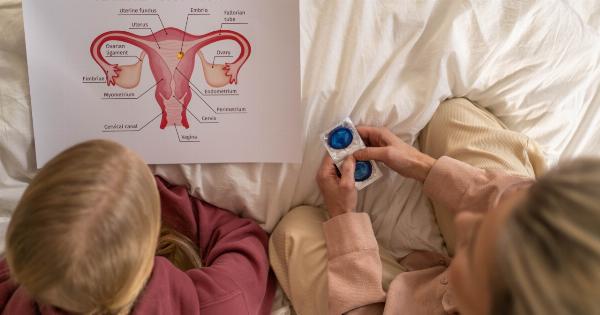Condoms are a popular and effective form of contraception that almost every sexually active person has used or will use at some point in their lives.
While condoms provide excellent protection against sexually transmitted infections (STIs) and unintended pregnancies, they can sometimes break during intercourse. A broken condom can be a scary and stressful experience, but there are several steps you can take to minimize the risk of STIs or pregnancy.
Why Do Condoms Break?
Condoms can break for several reasons, and it’s essential to understand them to prevent future mishaps. One of the most common reasons is incorrect usage.
A condom should be worn throughout the entire sexual act, and it’s essential to make sure that there is enough lubrication to prevent friction from causing a break. Using expired condoms, storing them in a hot or humid place, and exposing them to sharp objects can also increase the risk of breakage.
What to Do When a Condom Breaks?
If a condom breaks during intercourse, the first thing to do is to stop having sex immediately. Both partners should then inspect the condom to determine the extent of the breakage.
If the condom is still intact, it’s unlikely that you have been exposed to STIs or have a risk of pregnancy. If the condom has broken, the partner who is receptive should visit a doctor or family planning clinic as soon as possible. They may need to take emergency contraception or other medication to prevent STIs.
Emergency Contraception
Emergency contraception is a form of birth control that can be used after unprotected sex. There are two types of emergency contraception: The morning-after pill and the copper IUD.
The morning-after pill contains a high dose of progestin hormone that prevents pregnancy by delaying ovulation or preventing fertilization. It’s essential to take the pill within 72 hours of unprotected sex. The copper IUD is effective in preventing pregnancy and can be inserted up to 120 hours after unprotected sex.
The IUD works by preventing fertilization or implantation of a fertilized egg.
Taking a Pregnancy Test
If you are worried that you may be pregnant after a condom broke, it’s essential to take a pregnancy test. A pregnancy test can be taken as early as two weeks after unprotected sex.
If you have a negative test result, it’s best to wait for a week and take another test to confirm the result. If you have a positive test result, it’s vital to contact your healthcare provider who can provide information on how to proceed.
Getting Tested for STIs
If you have had unprotected sex or used a broken condom, it’s essential to get tested for STIs. Many STIs do not have symptoms, which means that you can be infected without realizing it.
It’s recommended to get tested for STIs at least once a year if you are sexually active. If you have had unprotected sex, it’s essential to get tested as soon as possible to prevent further transmission.
Preventing Future Condom Breakages
While it’s impossible to eliminate the risk of a condom breaking, there are several steps you can take to prevent future mishaps. Make sure to check the expiration date of condoms before using them.
Store them in a cool, dry place away from direct sunlight or heat. Avoid using sharp objects to open the condom package. Use lubricants that are compatible with condoms and apply them liberally to prevent friction during sex.
Conclusion
A condom breaking during sex can be an alarming experience, but it is essential to stay calm and take appropriate action. If a condom breaks, stop having sex, inspect the condom, and seek medical attention if necessary.
Consider emergency contraception and take a pregnancy test if you are worried about pregnancy. Get tested for STIs regularly, and take steps to prevent future condom breakages.





























